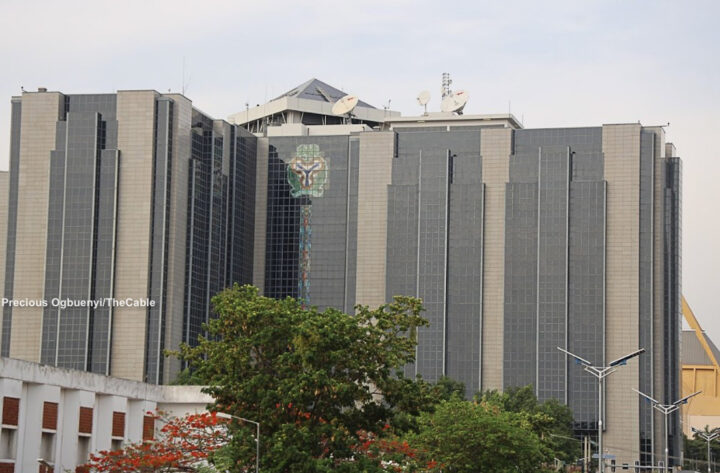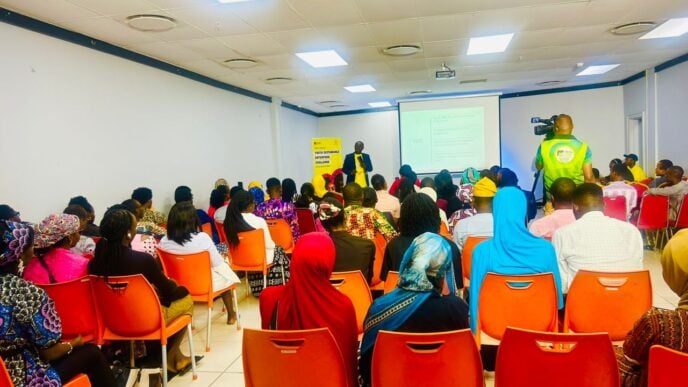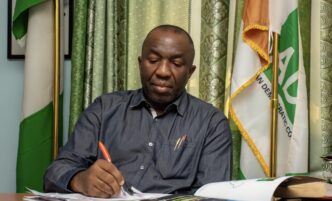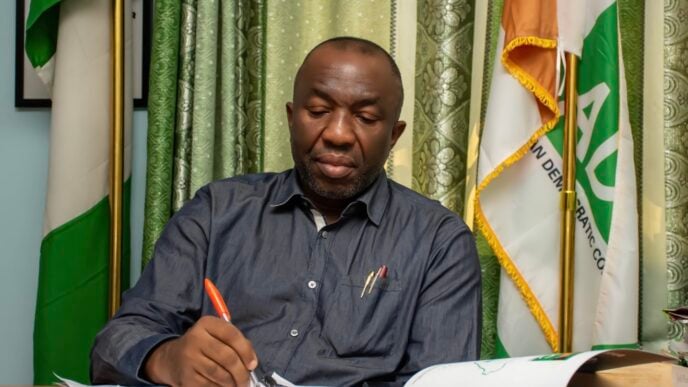Once regarded as a respected data body, Nigeria’s National Bureau of Statistics (NBS) is now a subject of concern over its failure to release critical economic reports.
There are indications that several key publications, expected to be updated quarterly or monthly, have not been updated in months. In some cases, entire quarters are missing.
By implication, the operations of government ministries, private investors, banks, researchers, and development partners may be negatively impacted as many of them depend on the NBS’s data to plan, assess risks, or measure performance accurately.
With Nigeria currently battling food inflation, unemployment, and low production levels, the delay in publishing economic statistics could undermine evidence-based decision-making at various levels.
Advertisement
While data production is said to be resource-intensive and (sometimes) affected by structural issues, the prolonged delay raises fundamental questions about institutional efficiency, funding, and commitment to transparency.
TheCable highlights critical NBS publications still pending, including what they cover, why they matter, and when they were last updated.
NIGERIA’S GDP REPORT
Advertisement
Gross domestic product (GDP) is the most comprehensive indicator of a country’s economic health. It helps policymakers, economists, and investors understand whether the economy is expanding, stagnating, or contracting. In Nigeria, fiscal and monetary decisions are heavily influenced by economic growth metrics, making GDP data crucial.
Yet, it has been observed that the first (Q1) 2025 report is still missing. The most recent data available remains the fourth (Q4) 2024 — a shift from the NBS’s usual practice of releasing GDP figures within eight weeks after the end of a quarter.
The NBS had announced plans to rebase Nigeria’s GDP — a move expected to capture structural shifts in the economy, and provide a more accurate picture of sectoral contributions, especially as digital services, informal trade, and the creative economy continue to expand.
The continued circulation of outdated data and the lack of a clear timeline for the release of Q1 2025 figures, question the bureau’s capacity to deliver on the rebasing timeline.
Advertisement
CIT AND VAT REPORTS
The company income tax (CIT) and value-added tax (VAT) reports are essential tools for tracking government revenue, business activity, and consumption trends. They help fiscal authorities and policymakers understand the performance of Nigeria’s non-oil revenue sources so that tax policies can be adjusted accordingly.
As of December 9, 2024, the most recent CIT report only covered Q3 2024. Similarly, the last VAT report, published on December 7, 2024, also stopped at Q3 2024. The Q4 2024 and Q1 2025 reports are still pending, creating gaps in how the economy is being measured at a time of major fiscal reform.
Experts suggest that the ongoing transition and review of the tax policy architecture may be contributing to the delay in publishing the VAT and the CIT data.
Advertisement
This comes amid the impending implementation of the new tax laws, recently signed by President Bola Tinubu, and expected to significantly alter the administration of VAT and CIT.
While the laws mark a huge shift for Nigeria, experts say the lack of up-to-date data from the NBS makes it difficult to track the early impact of these changes or make informed adjustments.
Advertisement
FAAC DISBURSEMENT REPORT
Though the NBS produces core economic reports such as GDP, unemployment, and inflation data, it also serves as a repository for statistics from other government agencies.
Advertisement
For instance, the CIT and VAT reports are generated by the Federal Inland Revenue Service (FIRS) but are deposited with and published by the NBS, underscoring the bureau’s role as the nation’s chief data aggregator.
The Federation Account Allocation Committee (FAAC) report is another example of such data. Although the NBS does not produce it directly, it usually makes the information available to the public through its platform.
Advertisement
The FAAC report outlines the distribution of revenue among the federal, state, and local governments. It is a crucial barometer of Nigeria’s fiscal federalism and intergovernmental financing.
Although intended to be a monthly publication, the last FAAC report uploaded by the NBS was for July 2024, leaving nearly a one-year gap that deprives policymakers, researchers, and subnational governments of insight into national revenue sharing.
INTERNALLY GENERATED REVENUE REPORT
Another key report yet to be released by the NBS is the internally generated revenue (IGR) report for 2024.
The last update was published in October 2024, covering data for the 2023 fiscal year.
The IGR report is crucial for assessing how Nigerian states are performing in terms of independent revenue generation, not federal allocations.
It offers insight into fiscal sustainability, tax administration efficiency, and state-level economic activity.
Typically, the NBS publishes a half-year IGR report, mid-year, and a full-year version at the end of each year. However, both the half-year and full-year reports for 2024 are still pending.
The half-year report for 2025, which should follow shortly after the mid-year report, has also not been released.
CAPITAL IMPORTATION REPORT
The capital importation report tracks the inflow of foreign investment into Nigeria across various channels, including portfolio, direct, and other forms of investment. It is critical for measuring investor confidence and the country’s attractiveness to foreign capital.
The last update — Q3 2024 — was released on December 6, 2024. Since then, the Q4 2024 and the Q1 2025 have not yet been published.
RAIL TRANSPORT DATA
The rail transportation report provides insight into passenger and freight movements across Nigeria’s rail corridors. It also paints a picture of government efforts in reviving rail infrastructure.
The most recent data available is for Q3 2024, released on December 13, 2024. There has been no update on Q4 2024 and Q1 2025, despite the growing push for intermodal transport reform.
EMPLOYMENT DATA
Labour force statistics remain vital for evaluating unemployment, underemployment, and workforce participation. Timely employment data is indispensable as Nigeria combats its job creation gaps.
However, the last update was for Q2 2024, published on November 25, 2024. The Q3, Q4 2024, and Q1 2025 reports are yet to be released.
TELECOMS DATA
The telecoms data report includes active voice and internet subscriptions per state, porting activities, and tariff trends. It is vital for tracking digital inclusion and sector growth.
The last report (Q1 2024) was released over a year ago. Q2, Q3, and Q4 2024, as well as Q1 2025, are still missing.
ELECTRICITY REPORT
The electricity report provides insight into power generation, distribution, and consumption. It is essential for assessing sector performance and planning energy reforms.
The last available data was for Q2 2024. Q3, Q4 2024, and Q1 2025 reports have not been uploaded, despite Nigeria’s push for tariff reforms and mini-grid expansion.
COST OF A HEALTHY DIET REPORT
This report tracks the minimum cost of meeting global dietary recommendations using locally available foods. Amid rising food inflation, it offers a benchmark for food security and nutrition interventions.
The last available update was in August 2024, even though the report is meant to be published monthly.
‘THE DELAYS HAVE DONE DAMAGE TO NBS CREDIBILITY’
Muhammad Bello, an economist, said the aforementioned data are important for economic planning.
He said government, businesses, and investors rely on these statistics to make decisions that affect millions of lives and shape the economy.
Any delay in their timely release is a disruption, the economist said.
“When such delays occur, everyone involved in making use of these data are forced to the alternative; outdated data or projected estimates which are based on historical patterns, and this is not always true as pattern changes every now and then,” Bello said.
“So, basing decisions based on estimates only might not truly reflect the true economic climate, and this can lead to poor business, investment and policy decisions.”
He added that in January, the Central Bank had to postpone its monetary policy committee meeting because the NBS had delayed the release of the December inflation report — an event he described as ‘very bad’.
“Every single decision by the Central Bank has ripple implications for people, business and investors, and during that period, a lot of business and investors were left in suspense, unable to plan or even respond to issues. And this doesn’t speak well of our institutions,” he said.
“Operating with missing or outdated information creates a ripple effect of poor decisions and policy missteps that have a huge social and economic cost.
Bello said the delays have done “serious” damage to the NBS’s credibility, adding that a large percentage of Nigerians no longer believe what the NBS reports anymore.
The economist believes that there is a widespread perception that the NBS is no longer as independent as it should be, as reports are not published, delayed, or methodologies are altered to suit political narratives.













